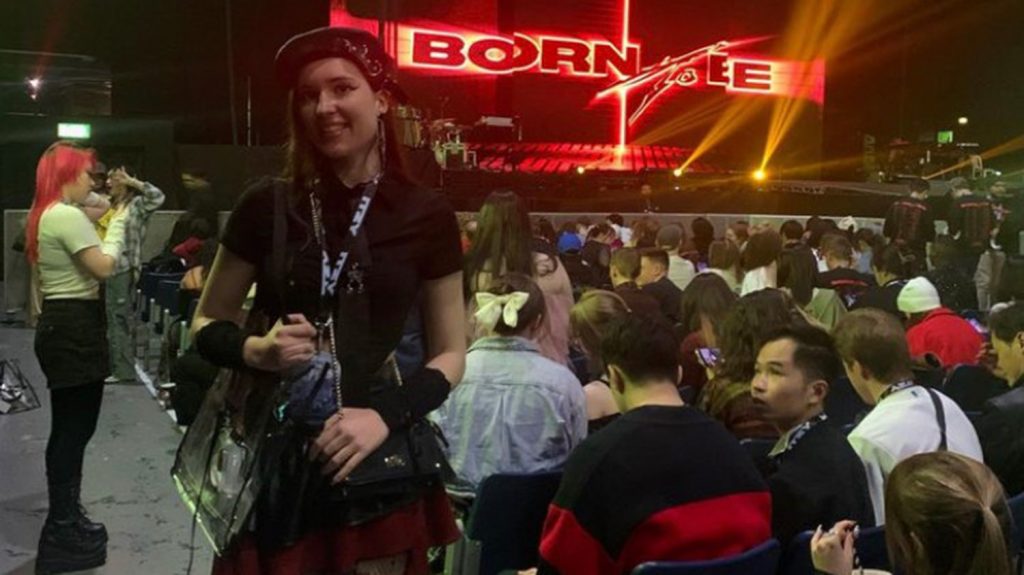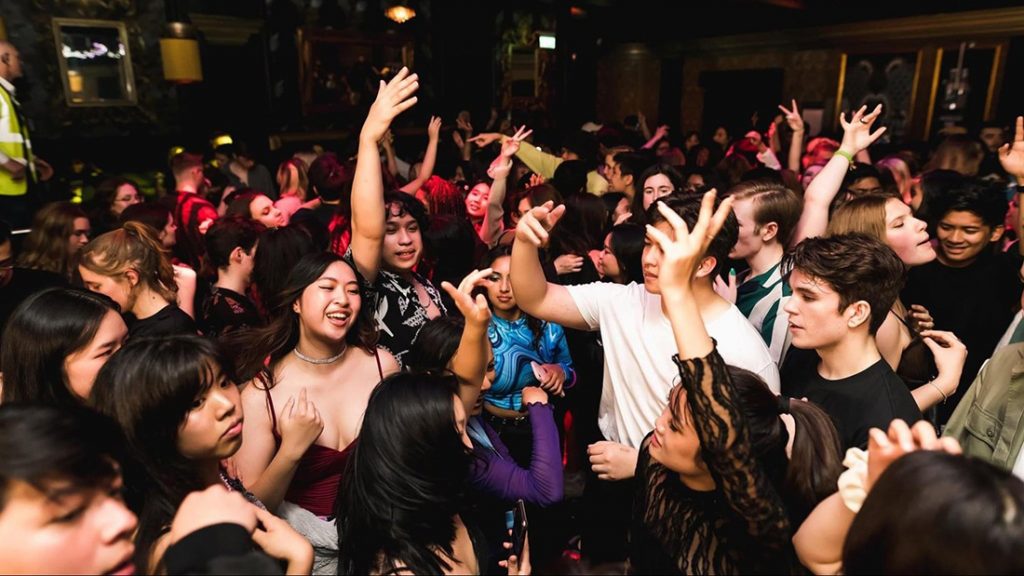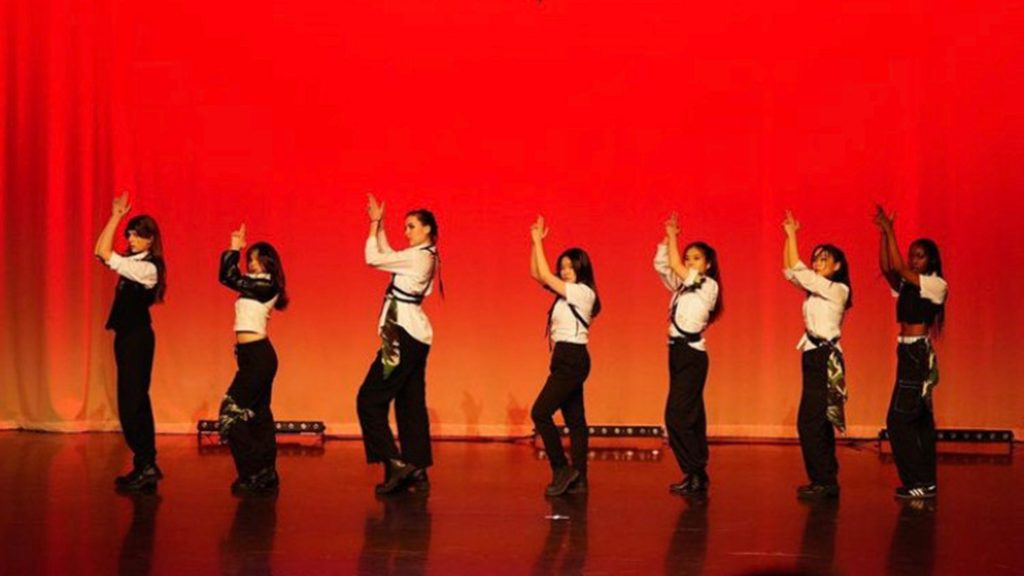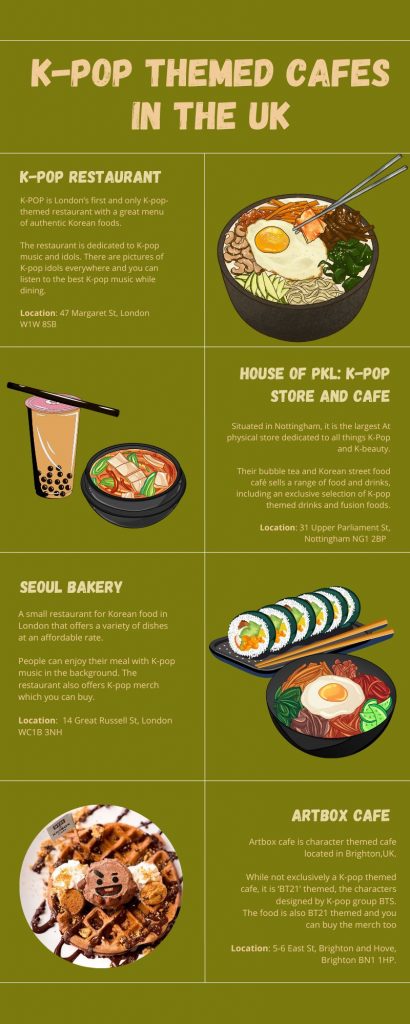With K-pop’s rising popularity in the UK, discover how it has fostered a strong sense of community and cultural connection among passionate fans.
The pulsating beats of K-pop reverberate through K-choreo, a dance studio in Cardiff, where the floor is slick with energy. Under the bright lights, a group of dedicated fans, dressed in colourful matching outfits, synchronously move to the rhythm of a BLACKPINK hit. Their steps are sharp and flow effortlessly, just like the choreography seen in the iconic music videos of their favourite K-pop stars. This is not just an ordinary dance class, it is a vibrant community gathering where passion for K-pop transforms into shared expression and camaraderie.
As the music peaked, the room buzzed with laughter and encouragement. Each step felt more than a dance move when they were together. For these enthusiasts, the dance class is a gateway not only to perfecting their moves but also to delving deeper into Korean culture. Here, K-pop serves as a bridge between continents that unites people through a shared love that extends beyond mere fandom into community and cultural exploration.
Natasha, who was a part of this dance crew recalls how being a fan of K-pop got her a lot of friends and enjoyed her time there. “The sense of community I feel is really special. It is almost impossible to feel lonely when you are a K-pop fan,” she said. “I have friends who are dancers, because I am a dancer. Other fans form friendships through other ways. It is amazing”.
K-pop, short for Korean pop music, has become a global phenomenon, captivating millions of fans worldwide, and the UK is no exception when it comes to the fanbase. From London to Manchester to Cardiff, K-pop has attracted fans with its catchy melodies, energetic performances and charismatic artists, who are called ‘idols’.
In Europe, the British are the biggest K-pop fans, ranking 11th for streaming numbers out of every country in the world. Large fandoms have developed in the UK, both on and off social media, where specialist groups and fan pages are actively promoting, such as BTS UK Army Unite with more than 70,000 followers on X.

But beyond the music, K-pop offers something deeper- a sense of belonging and a gateway to Korean culture. For many UK fans, K-pop is not simply just a genre. It has given them a new perspective on the fandom and a close-knit community to be a part of. For them, the sense of community is a defining aspect of their experience, where the K-pop fandom is known for its strong, supportive and inclusive nature.
“K-pop has given me so much more than just music to enjoy,” Natsha said. “The sense of belonging which I feel here, I just know that I won’t find it anywhere else.”
This sense of belonging is common among UK K-pop fans, who often form communities both online and offline. Social media platforms like Twitter, Instagram and TikTok have several UK-based fan accounts, dedicated to their favourite K-pop groups. These platforms serve as a space for fans to connect, share their experiences and support each other.
K-pop fan clubs and societies at universities across the UK organise events, dance workshops and meet up that bring fans together to celebrate their shared love for the music.
“You can easily find people who follow the same group as you, and there is usually a K-pop community in every city in the UK, especially in bigger cities like London and Manchester. The events they organise are very interesting too,” says Natasha.

K-pop’s ability to bring people together is one of the reasons why it has such a strong following in the UK. This is evidenced by the K-pop events like Hallyu Con and K-pop World Festival UK, which witness a huge number of fans attending.
K-pop conventions like these play a significant role in fostering this sense of community. These events offer fans the opportunity to meet like-minded individuals, participate in various activities and celebrate their love for K-pop.
Fans support each other through various initiatives like charity drives and social campaigns. One notable example is the boy band BTS’s fan group, ARMY’s collaboration with UNICEF for the “Love Myself” campaign, which aims to end violence against children and teens. Fans from the UK have actively participated in this campaign, raising awareness and funds for the cause.
K-pop fans are also known for their high level of engagement in various activities like dance cover groups, fan arts and collecting merchandise. In the UK, there are numerous dance classes and workshops for the fans to learn choreography from their favourite songs. A recent survey showed that 31% of the fans engage in some form of K-pop dance activity.

Chloe, a UK-based K-pop fan, shares how her journey with K-pop led her to find a community that felt like family. “K-pop did influence my social life when I auditioned for a group in 2020, but failed, trained and retired a year later and finally debuted. Since then, we have been invited to so many events, contests, and shows. We met with other groups and had collaborations, so I met so many people with the same passion, and my group feels like a family,” she said. This sense of community, of finding like-minded individuals who share a deep passion, is a recurring theme among K-pop fans in the UK.
For some UK fans, addition to being part of a community, K-pop has also become a lifestyle that influences fashion choices and social interactions.
“K-pop has definitely influenced my life in many ways,” Natasha says. “At first, I didn’t change my style, but as I got more into K-pop, I started liking their fashion, skincare and makeup.”
This fascination with K-pop aesthetics is not uncommon. Anya, who is from Manchester, says that through the shared love for K-pop with her friends, she was also influenced by their fashion and skincare, which is inspired by K-pop.
“I never really cared about my skin or what I wear. But I was fascinated by the way my friends wear K-pop inspired outfits and makeup, and I changed my style. Really, K-pop changed me,” she said.
From imitating the latest trends introduced by their favourite idols to adopting Korean beauty routines, fans often find themselves inspired by the distinctive styles that K-pop is known for. The vibrant colours and innovative looks worn by the K-pop idols set the stage for fashion trends that fans eagerly follow.
K-pop has a way of bringing people together from communal activities like learning dance routines, attending K-pop events, to having shared interest in K-pop trends. These activities often lead to meaningful friendships and social bonds.
Events like K-pop concerts offer a space to enjoy shared interest with loved ones, and form new friendships. When Chloe attended the Music Bank in Paris, a K-pop festival with her family and friends, she recalled how she felt even closer with them.
“It was one of the best experiences because I went on a short trip to Paris with my mom, sister, cousin, and friends, and it was the first concert I attended. We had crazy outfits too. Those were the best memories,” she said.
Events like these are not just about seeing idols perform live, they’re about sharing the experience with loved ones and fellow fans, creating a sense of unity and shared joy.

“The biggest impact for me as a K-pop fan was joining a K-pop dance crew in my area,” Natasha says. “Thanks to that, I met a lot of my friends, and I am still close with them even after five years. Most of my social activities are now with friends I met through the dance crew or at events related to K-pop.”
K-pop has also opened doors to Korean culture for fans. Through their love for this genre, fans often develop interest in the country and the culture itself, with food and language at the top.
However, the impact of K-pop on its fans is not just about aesthetics and social connections. It is also about cultural appreciation and understanding. Engaging with K-pop often leads fans to delve deeper into the cultural context behind the music, from learning Korean phrases and understanding traditional Korean customs.
The influence of K-pop on cultural exchange is significant. According to the Korean Foundation for International Cultural Exchange, the number of people learning the Korean language worldwide has increased substantially, driven in part by the global popularity of K-pop. This trend is evident in the UK, where Korean language classes have seen a surge in enrollment.
Chloe, who felt interested in Korean culture and started learning the Korean language. “I initially started learning Korean because I wanted to understand the lyrics of my favourite songs. But I got attracted to the culture too,” she said. “Now I can hold basic conversations in Korean, and it has opened up a deeper appreciation for another culture.”
It is almost impossible to feel lonely when you are a K-pop fan.
Natasha, 20, Student
The Covid-19 pandemic had a profound impact on the K-pop community, just like every other fan community worldwide. In-person events like fan meets and concerts were cancelled, leaving fans to seek connection online. This resulted in platforms like Twitter and Instagram to thrive during lockdown.
Despite physical distancing, online interaction kept the community alive and allowed the fans to stay connected. X, then Twitter reported a 15% increase in daily K-pop related tweets during the pandemic.
Fans organised virtual concerts, fan meets and even awareness posts on public health for people who were affected by Covid-19. These online interactions kept the sense of community alive and allowed fans to stay connected despite physical distancing.
In addition, UK based YouTube channels like Niki Albon dedicated to K-pop reactions, Twitter fan accounts and TikTok dance challenges facilitate engagement with fellow fans. These online communities often transcend geographical boundaries, allowing fans to connect with others from around the world who share similar interests. This global connectivity is a unique aspect of the K-pop fandom, fostering a sense of belonging that is both local and international.
The influence of K-pop on UK fans is diverse, affecting everything from their personal style, while some from social circles through shared interests while some others educate themselves to improve their cultural knowledge. It is a phenomenon that goes beyond mere entertainment, offering fans a sense of identity, community and belonging.
As K-pop continues to thrive, its impact on the lives of its fans will undoubtedly grow, fostering connections that cross cultural divides and creating a vibrant, inclusive community that celebrates diversity and shared passion.
“Once you become a K-pop fan, you find people to connect with one way or the other. It happens without us knowing,” says Natasha. “Being a part of this community, learning about the culture and connecting with people is the best thing about being a K-pop fan.”

